Ben Peek is the author of the upcoming novel, The Godless. His previous novels include, Black Sheep, Twenty-Six Lies/One Truth, and Above/Below. His short story collection, Dead Americans and Other Stories, was released earlier in the year by ChiZine Publications. He can be found at The Urban Sprawl Project and on twitter at @nosubstance. You can read the first five chapters of The Godless at Tor.com.
No-one cares about you.
Publishers don’t care about you. Editors don’t care about you. Agents don’t care about you. Readers don’t care about you.
No-one cares about you.
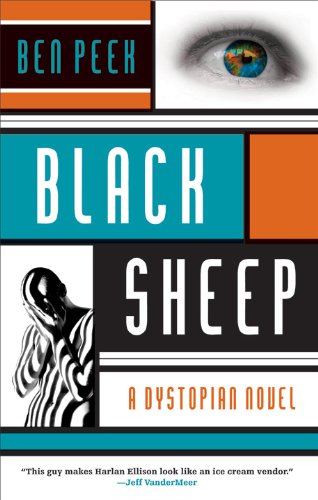 At the start of your career as an author, you need to hold onto those words. No other advice is more valuable to you, no other advice more proven by experience. You need to hold to it tightly. Make it an armour. Write it down on paper and tape it to your chest. Leave it on a pad beside your monitor. Imprint it on your mind. Avoid the tattoo, but use a sharpie and write it on the inside of your arm, daily. It will change one day, of course, but not on the first day. On the first day, you will sit in front of your computer, or you will hold your notepad and pen, and you will begin to write. While you do that, everyone in publishing will continue as they did before, and you will go completely and utterly unnoticed. It will be as if they did not care about you, at all.
At the start of your career as an author, you need to hold onto those words. No other advice is more valuable to you, no other advice more proven by experience. You need to hold to it tightly. Make it an armour. Write it down on paper and tape it to your chest. Leave it on a pad beside your monitor. Imprint it on your mind. Avoid the tattoo, but use a sharpie and write it on the inside of your arm, daily. It will change one day, of course, but not on the first day. On the first day, you will sit in front of your computer, or you will hold your notepad and pen, and you will begin to write. While you do that, everyone in publishing will continue as they did before, and you will go completely and utterly unnoticed. It will be as if they did not care about you, at all.
None of them are evil, if that is what you are thinking. Perhaps an editor, somewhere, owns a secret mountain base and a white cat and they stroke it while rejecting manuscripts, but mostly, they’re in it because of love. Publishing doesn’t pay enough for hate. But until they buy your first piece, you are but a stranger to them, and they will not care about your trials and tribulations, no matter how difficult or interesting they are.
I sold my first short story at the age of seventeen, twenty years ago. I do not remember how much I was paid, but it doesn’t matter because the magazine folded before payment and print. I would get dozens and dozens of rejections after that, at first in the mail, each one of them delivered by men and women on bicycles and motorbikes; and then I would get them electronically, by editors who never, ever want a reply. I sold a novel that took years to get published. I sold another that was published within a year. I sold a novel that never got sold – the contract fell through – and I have had that moment in your career where everyone seems to abandon you and you feel like you have returned to a zero point. I have seen writers come and go, and sometimes they have been talented and disappeared, and other times, they have been awful and stayed. I have done enough that I can tell you, easily, that there is no one way to get published and no one way to stay in print except by hard work at the keyboard. There are no favours and no inside tracks to be exploited or revealed to you.
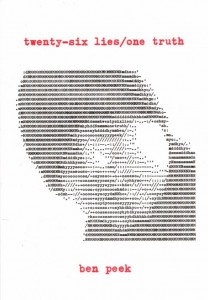 Publishing is a business. Writing is an art. After the latter, you have the former to deal with, always. They require different tactics and, just as with act of writing, what works for one may not work for the other. Print, electronic, publisher, yourself: it’s all a road to a reader.
Publishing is a business. Writing is an art. After the latter, you have the former to deal with, always. They require different tactics and, just as with act of writing, what works for one may not work for the other. Print, electronic, publisher, yourself: it’s all a road to a reader.
These days, the diversity in publishing platforms means that you can self publish without the stigma that once came with it if you have the available capital to do so. It isn’t cheap to do it yourself, because the editors and cover artists you will need to hire don’t work for free, but if you can afford it, and if you can hit that right audience, it will do you fine.
But if you want to deal with publishers – my personal preference – you will need an agent, first and foremost. Others will tell you that you don’t, and it is true that you can sell a book without an agent, but if you are like me, you will look at your contract and blink, hoping that it will soon make sense. But what you want in an agent is not going to be found in that paper for one book. You want an agent who will be around in your career in the years that follow. An agent is someone you can build a relationship with. They will help you navigate the labyrinth world of publishing for the benefit of both you and him or her, and you will be grateful for it. Publishing is a business, as I said, and it is huge, and when you are within it, it has what feels like an endless amount of departments, each of them competing for what they feel is right not just for your book, but for their business. A good agent will earn his or her commission a hundred times over by the time your book is released into the world and you’re writing another.
But you, what can you do, before you even have an agent, or have sold a book, and are busy with the struggles of maintaining a career?
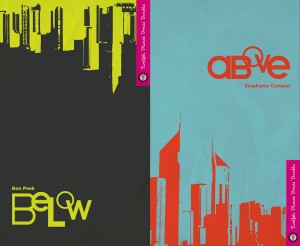 First you need to write. You can do that however you like: in the day, in the night, or in the snatches of free time you can steal. You can go to courses, join writing groups, or avoid all of that. Myself, I have done all of it, and I eventually settled on sticking to myself. But once you have written, you have to edit and then you have to submit it, and both require you to be patient and to be resilient. Once you send it out, people will reject you. Sometimes rightly. Sometimes not. It is easy to do when they don’t know who you are and have no connection with you. It is rather like telling a person on the corner of a street that, no, thank you, you don’t want that flyer. They might take six months to do it, but they’ll do it. They may reject you when you’re having a particularly bad day. Or a particularly good one. It’s like that, a lot of the time.
First you need to write. You can do that however you like: in the day, in the night, or in the snatches of free time you can steal. You can go to courses, join writing groups, or avoid all of that. Myself, I have done all of it, and I eventually settled on sticking to myself. But once you have written, you have to edit and then you have to submit it, and both require you to be patient and to be resilient. Once you send it out, people will reject you. Sometimes rightly. Sometimes not. It is easy to do when they don’t know who you are and have no connection with you. It is rather like telling a person on the corner of a street that, no, thank you, you don’t want that flyer. They might take six months to do it, but they’ll do it. They may reject you when you’re having a particularly bad day. Or a particularly good one. It’s like that, a lot of the time.
And when the rejection comes, you will read it, and not reply. You do not want to be remembered by replying to your rejection.
When it comes to the actual writing, there are things that will make you more attractive to both an agent and a publisher, but it is not as many as you think outside a) good writing and b) someone liking your good writing. For example, writing a 220,000 word novel will make it harder for you to get your first book published. It isn’t that your huge book is awful (though maybe it is), but rather that there is a financial consequence to such size in terms of shipping, printing, and so forth. For the majority of new authors, it will be a burden a publisher has to assess and they will have to add that to the risk of a new author, regardless. My advice, for what it is worth, is to keep your first book between 100, 000 and 120, 000 words. You can find examples of authors whose first novel was big enough to injure small wildlife, but as small creatures everywhere will tell you, they are the exception, not the rule.
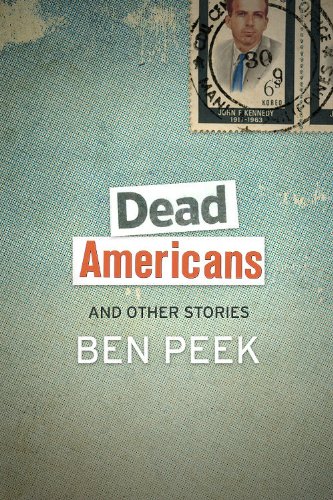 After you have written your book, you should write a synopsis of it. A synopsis is its own creature, and should not exceed a few thousand words, generally speaking. There are a few different ways to do it, and a search of the internet will introduce you to them, but you will want to write it. It’s awful and I hate it, but an agent or a publisher will want to see it in your submission. At other times, after. You want to have a good one, so a little practice is a good idea. You want to do the same for your cover letter. Your polite cover letter. I know that sounds a bit strange to emphasise that, but if you happen to come across an editor, perhaps leaving his or her secret base, ask them about cover letters. You’ll laugh and if it was you, you’ll laugh to hide your tears.
After you have written your book, you should write a synopsis of it. A synopsis is its own creature, and should not exceed a few thousand words, generally speaking. There are a few different ways to do it, and a search of the internet will introduce you to them, but you will want to write it. It’s awful and I hate it, but an agent or a publisher will want to see it in your submission. At other times, after. You want to have a good one, so a little practice is a good idea. You want to do the same for your cover letter. Your polite cover letter. I know that sounds a bit strange to emphasise that, but if you happen to come across an editor, perhaps leaving his or her secret base, ask them about cover letters. You’ll laugh and if it was you, you’ll laugh to hide your tears.
Then, write something else.
After you have sent your query, your synopsis, write something else. Start a new novel, if you want. Write a short story. Short stories are, in fact, a great thing for authors to learn how to write – it is a really constrained, exacting form, where small mistakes are punished completely and impossible to hide. But whatever you do, begin working on something else, and occupy your mind with different work while you wait.
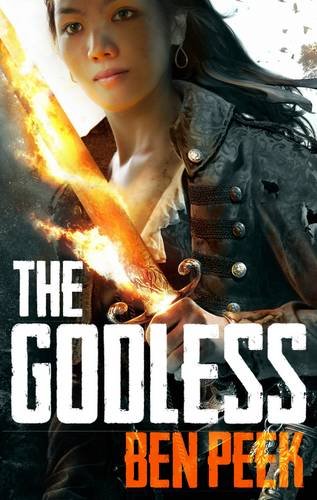 It may be that none of this sounds like particularly insightful, or useful advice – there’s nothing new here, you might cry – but if anyone was to come up to you and offer you a sure fire, easy way to get published… your best response would be to knife such a person quickly for being a piece of shit and then hide their body. My advice is to do that in a place that will incriminate your enemies, but that is just me. Either way, such is the response to anyone who says that. In all my twenty years, in all my ups and all my downs, I have learned but one way to be published: and that is for you to do your work, to submit your work, and to be professional with your work.
It may be that none of this sounds like particularly insightful, or useful advice – there’s nothing new here, you might cry – but if anyone was to come up to you and offer you a sure fire, easy way to get published… your best response would be to knife such a person quickly for being a piece of shit and then hide their body. My advice is to do that in a place that will incriminate your enemies, but that is just me. Either way, such is the response to anyone who says that. In all my twenty years, in all my ups and all my downs, I have learned but one way to be published: and that is for you to do your work, to submit your work, and to be professional with your work.
Indeed, my only other advice to you is that you should read like you write. You should read in the day, in the night, in the snatches of time you can steal. And you should read the genre you love and want to be published in, and you should read outside it. Genre boundaries have no place anywhere, not even in a bookstore, and you should read as if they do not exist. You need to be learning as an author and the teachers are many and varied, if you are willing to look. You should never be afraid to learn from non-fiction, just as you shouldn’t be afraid to learn from an author who is Indian, or transgendered, for example. Read academics. Read pulps. Read comics, read plays and read the good and bad classics. You will learn from everything if you but have an open mind.
And then, remember that no-one cares about you, and won’t, until you sell that first book. Then, and only then, will it change.
 Pop Verse Pop Culture Universe
Pop Verse Pop Culture Universe
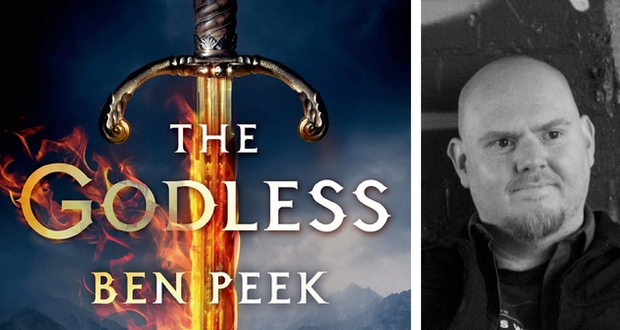

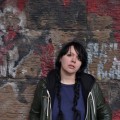
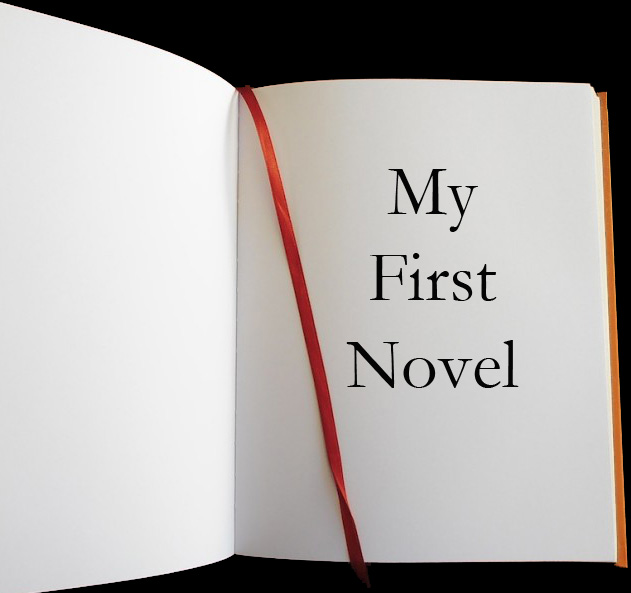
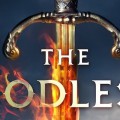


… though it probably won’t change even then, very much, as most publishers, festivals, critics etc will still never have heard of you. This is all excellent, excellent advice and thank you very much for writing it.